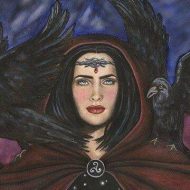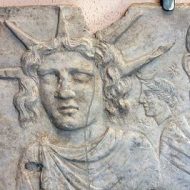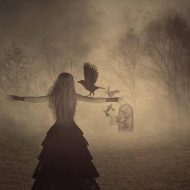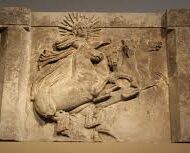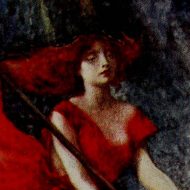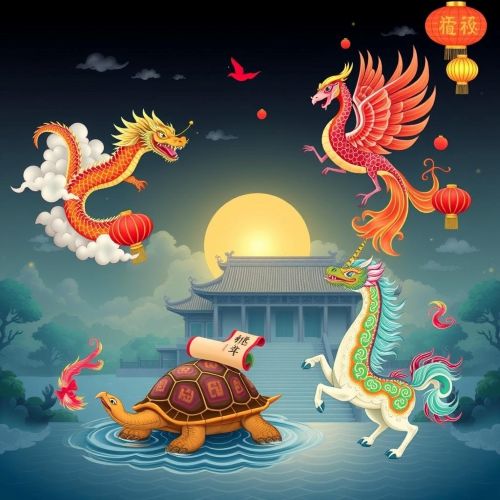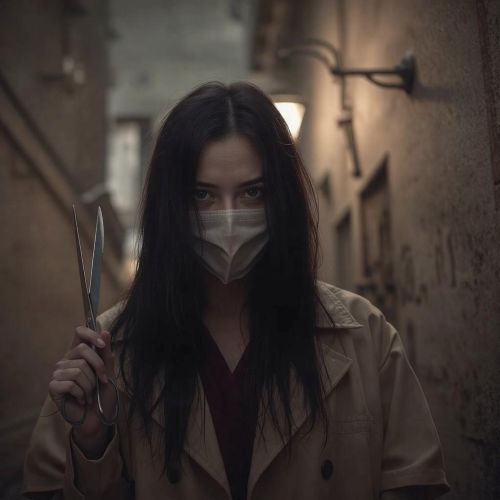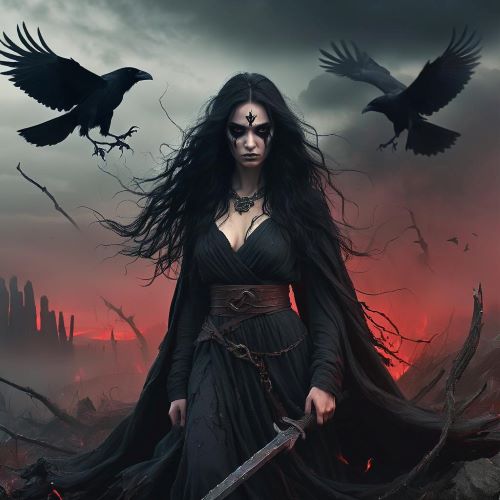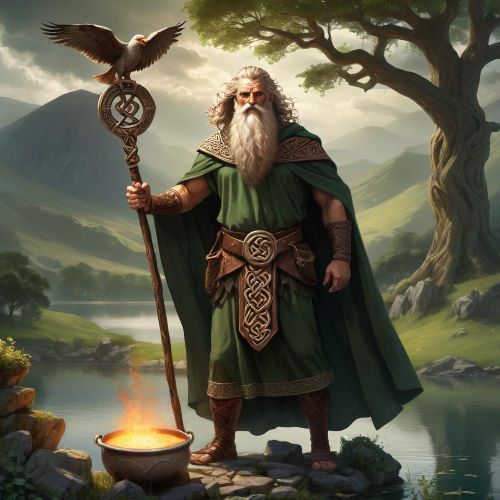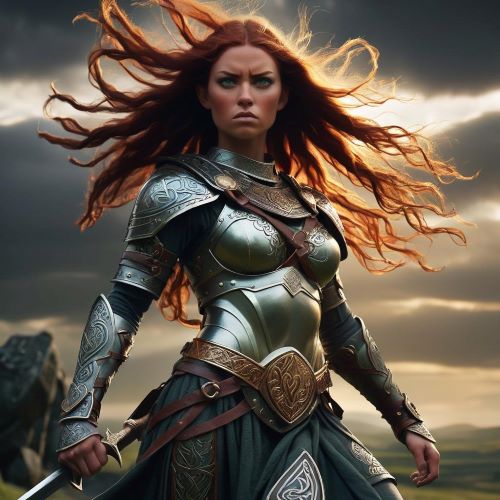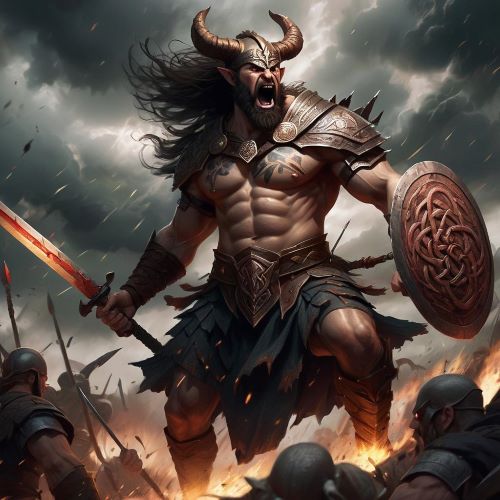Morrigan : The Goddess of War
Listen
At a glance
| Description | |
|---|---|
| Origin | Celtic Mythology |
| Classification | Gods |
| Family Members | Ernmas (Mother), Ériu, Banba, Fódla (Children), Dagda (Husband) |
| Region | Ireland |
| Associated With | War, Magic, Shapeshifting |
The Morrigan
Introduction
The Morrigan was an Irish-Celtic goddess of war and was known to incite violence, rage, frenzy and was also regarded as the bringer of death. The goddess could take any form of creature she wanted, and she was able to bring about the downfall of a hero-warrior named Cu Chulainn after he rejected her numerous attempts to seduce him. Her coupling with the Dagda, another major warrior-god, was an important part of the Samhain festival which the Celts celebrated to mark the beginning of a new year.
The Morrigan is a goddess of war, fertility, and battle. She has been referred to as the Phantom Queen, and she is also a part of a trio of goddesses known as the Badb and Nemain. The Morrigan frequently appears in the ornithological guise of a hooded crow. She is one of the Tuatha De Danann (People of the Goddess Danu) and She helped defeat the Firbolgs at the First Battle of Magh Tuireadh and the Fomori at the Second Battle of Mag Tured.
Physical Traits
The Mórrigan has a terrible appearance, and it is this and her aggression which have a strong psychological effect on whoever she chooses during a battle. At the same time, the goddess can be sexually attractive. Consequently, the Mórrigan is both a symbol of destruction and fertility.
Family
The Morrigan is believed to be the daughter of Ernmas (a mother goddess), who was in turn the daughter of Nuada, the king of the Tuatha Dé Danann. Her siblings are variously listed as Ériu, Banba, and Fódla—who made up the triple goddess representing the spirit and sovereignty of Ireland—as well as Badb and Macha. The Morrígan was married to the Dagda, the “Good God” and one of the kings of the Tuatha Dé Danann.
Other Names
There is debate over the meaning of the Morrigan’s name. It is believed that the goddess derives from an Indo-European root that is associated with terror. It is also translated as “the queen”. The name Morrigan is derived from the word queen, which is often translated to great queen. She is associated with the fury of war, which is why she is sometimes referred to as the queen of demons.
Powers and Abilities
The goddess has a variety of powers, such as being able to cast spells and predict the future and she is also capable of changing her form at will. She is also linked with the raven or crow, which is a creature associated with war and death.
The Morrigan also has led to the origin of the banshee, who can foretell the death of a household by letting out an extremely loud wail or scream. Usually, she is seen in a physical form as an old woman with long hair.
Modern Day Influence
The Morrigan is one of the most popular characters that has been constantly adapted in modern times in numerous mediums and channels. Her symbolisms and characteristics have inspired evil characters in movies, comics, cartoons and novels and is usually the framework around which female characters responsible for chaos usually follows.
Related Images
Frequently Asked Questions
What is Morrigan the goddess of?
Morrigan is a Celtic goddess associated with war, fate, and sovereignty. She is often depicted as a figure of battle, capable of shape-shifting and influencing conflicts. As part of the Tuatha Dé Danann, her name translates to “phantom queen” or “great queen” in Irish mythology.
Is the Morrigan good or bad?
In Celtic mythology, Morrigan’s morality isn’t clear-cut; she embodies both positive and negative qualities. She can act as a protector in battle but also manifests as a harbinger of doom. Morrigan’s character reflects the nuanced nature of ancient mythology, defying simple categorization as good or bad.
Who did the Morrigan love?
In Celtic mythology, Morrigan is often linked romantically to Cu Chulainn, a renowned Irish hero. Despite her affection for him, their relationship is marked by complexity and occasional conflict. Morrigan’s feelings for Cu Chulainn are a significant aspect of her mythology, reflecting her multifaceted nature.
Who is the Morrigan's husband?
In Celtic mythology, Morrigan is not explicitly linked to a husband. Her associations often center around figures like Cu Chulainn, but she remains an independent and powerful entity. Morrigan’s mythology emphasizes her sovereignty, war prowess, and complex relationships rather than a traditional marital bond.
Is Morrigan a villain?
In Celtic mythology, Morrigan is not universally portrayed as a villain; her character is multifaceted. She can act as a formidable force in conflicts but also aids heroes at times, reflecting her complex nature. Morrigan’s role defies a straightforward classification as solely heroic or villainous.

